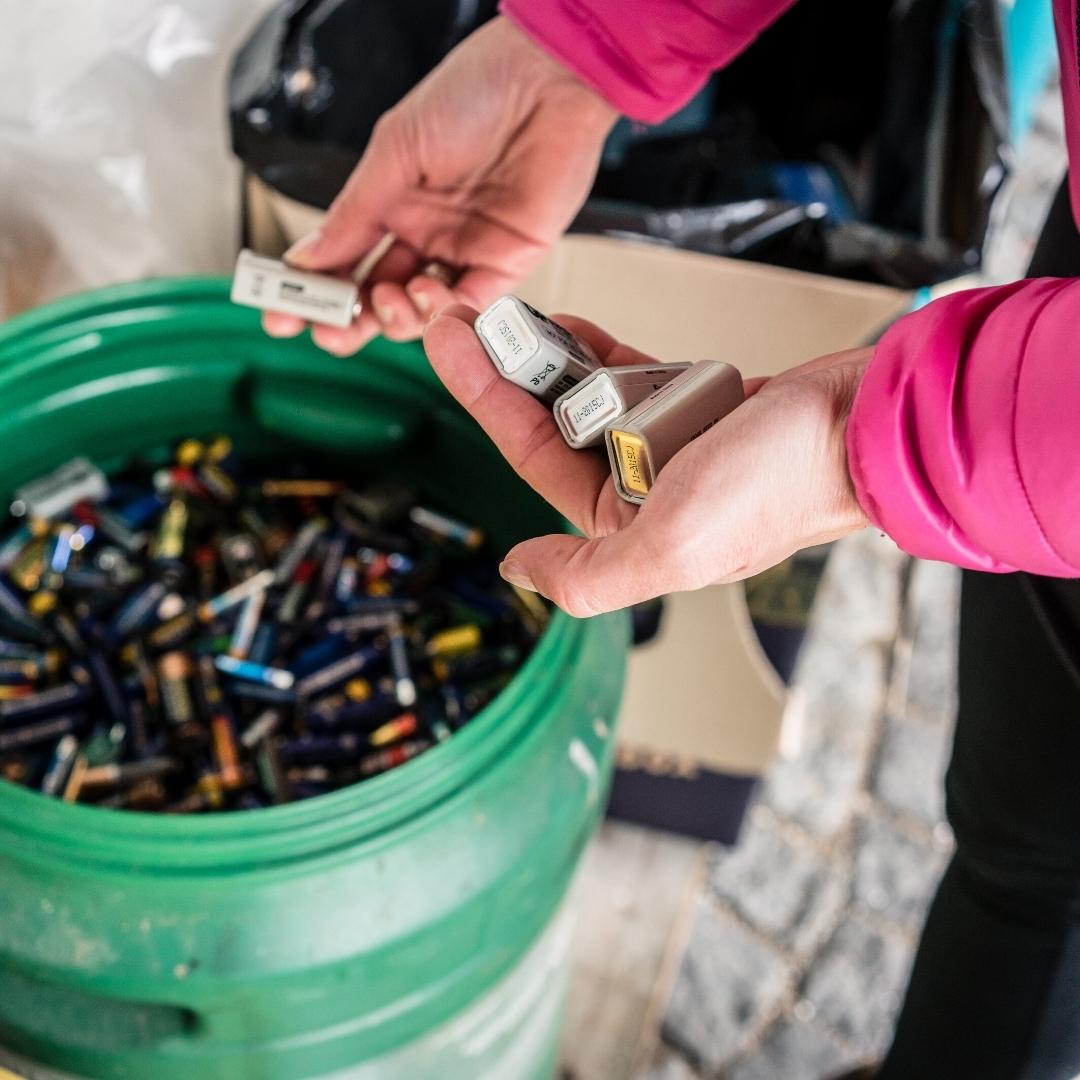Aussie fertiliser company, ReNutrients, is harnessing a groundbreaking technology that turns toxic alkaline batteries into organic, liquid fertiliser!


96% Of Batteries In Australia Are Dumped In Landfill
Australia has a big battery waste problem. It’s estimated that 96% of all batteries are not recycled, and instead, alkaline batteries are dumped into landfill, where the toxic heavy metals leak into the soil and groundwater.
Now, a brand new technology could prevent up to 419 million alkaline batteries from entering landfill in Australia! ReNutrients is using the new technology — developed by Finnish company, Tracegrow — to strip toxic alkaline batteries of their Zinc and Manganese, which can be used to fertilise food crops. ReNutrients hopes to build a processing facility in Queensland within the next two years.


Turning Toxic Batteries Into Nutrient-Rich ‘ZM Grow’ Fertiliser
The Finnish-developed technology — which has recently been patented for Australian-use — strips alkaline batteries of Zinc and Manganese and transforms the minerals into a rich, micronutrient fertiliser called ‘ZM Grow’. The liquid fertiliser is clean enough to be used in organic food farming.
ZM Grow outperforms competing products on the market in both yield volume and uptake of crops. In fact, the organic fertiliser boosted the yield volume of food crops by up to 26%. Not only does this new technology prevent toxic batteries from entering landfill — it also boosts the productivity of food crops! ReNutrients is set to process Australia’s battery waste locally and produce high-quality, useful products that can be used in agriculture and other industries. This will boost jobs and limit the need to ship battery waste overseas.


Battery Recycling — ‘A Problem That No One Talks About’
Did you know that it only takes one small battery to pollute 167,000 litres of drinking water? As batteries corrode in landfill, harmful chemicals leach into the soil, groundwater and air — which can pollute the freshwater that we drink. Plus, sending batteries to landfill is a waste of valuable resources.
“It’s scary to think 419 million handheld batteries sold each year are leaking toxic waste into our environment,” said Brett Smuts. According to Brett, many countries have banned the importation of toxic waste and e-waste, which leaves no other option but to dispose of it in Australia landfills.
“With less than 4% of batteries recycled in Australia, we are risking our health and our planet by not recycling." – Brett.


‘B-cycle’ — Building A New Circular Economy For Batteries
The future of battery recycling in Australia is looking positive, thanks to ‘B-cycle’! In 2020, the Australian Competition and Consumer Commission approved Australia’s official battery stewardship scheme, set to launch this year. B-cycle will change the battery recycling game in Australia by incentivising the collection, sorting and recycling of batteries.
B-cycle’s unique stewardship model, established by industry and supported by government, is designed to disrupt the market for recycled batteries and stimulate industry development and investment to create a viable circular economy for batteries. Within the next 2 years, we can expect to see ReNutrients’ local production facility in Queensland. Here, the high-quality ZM Grow will be manufactured and distributed to Australian farmers.
Transforming toxic alkaline batteries into organic, liquid fertiliser prevents batteries from entering landfill and provides a high-quality product for Australian farmers. It’s a win-win!
Until this groundbreaking technology is underway, we need to be mindful about the amount of batteries that we use. Try to use rechargeable batteries where possible, or find a local battery recycler near you.
We love hearing about new technologies that promote a circular economy. For more examples like this, check out our Eco News category and the blogs below!
‘Reforest’ App Users Have Removed 100,000kg of CO2 From The Atmosphere
This Sustainable, Floating ‘Continent’ Cleans Up Ocean Plastic
Toast Ale’s Bread-To-Beer Brewing Reduces Food Waste & Carbon Emissions

